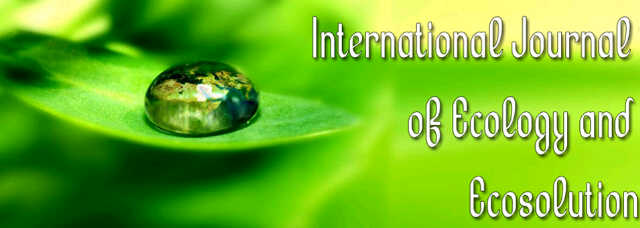Effects of oil spillage on soils nutrients of selected communities in Ogoniland, south-eastern Niger Delta, Rivers State, Nigeria
Ayodele A. OtaikuInternational Journal of Ecology and Ecosolution
Published: October 28 2019
Volume 6, Issue 3
Pages 23-36
Abstract
Crude hydrocarbon spill and exploration activities destroy biodiversity of study locations ecosystem and inhibitory to plant growth in polluted soils (Ultisols) in selected communities (Zaakpon, Kpean, Yorla and Gure) at 0-30 cm depths in Ogoniland, Niger Delta, Nigeria and study conducted June-August, 2004.The aesthetic, agro-ecology and environmental biodiversity quality of selected communities impaired by the multinational oil companies. Data analyses variance, mean by Duncan multiple range test (SAS, 1985) over locations, depths, macronutrients and micronutrients of the selected communities at least significant difference P<0.1 for the polluted and unpolluted soils. The impacted soils localized between 0-15 cm depths with low organic matter contents (< 1% Org. carbon) and high C/N ratios at Gure (11.58), Zaakpon (52.95) and Kpean (25.49) results to low microbial activity and poor vegetative landscape except at Yorla with C/N 8.66 that support biodiversity ecological services. Forest ecosystems react sensitively to the soils 2.8 highly acidic with pH value and that will requires soil amendments for soil nutrients enhancement for biodegradation and restoration ecology. The impacted soils fertility analyses of crops tolerant to nutritional imbalance of the study area are: maize, banana, cassava, mango, pineapple, sweet potato and tomatoes base on their critical nutrient concentrations of the crops yield.
Keywords: Bioremediation, soil nutrient, Ogoniland, carbon/nitrogen ratio, crude hydrocarbon pollution, Niger Delta, microbial inoculant, manure, climatic change, crops yield, restoration ecology.
Full Text PDF
